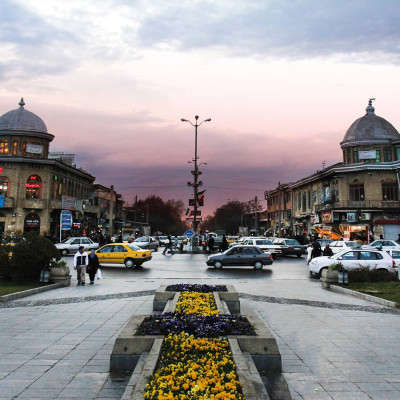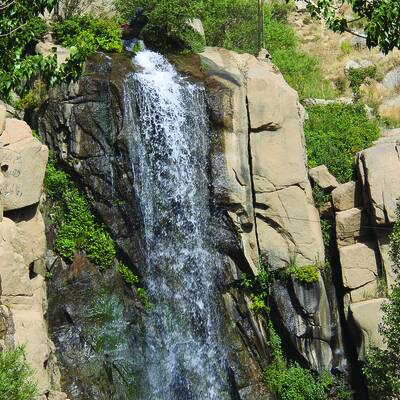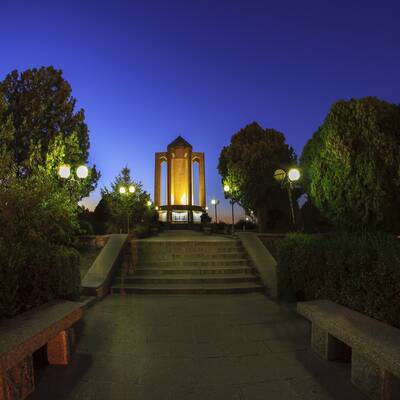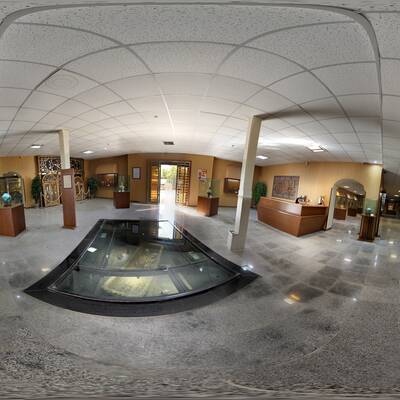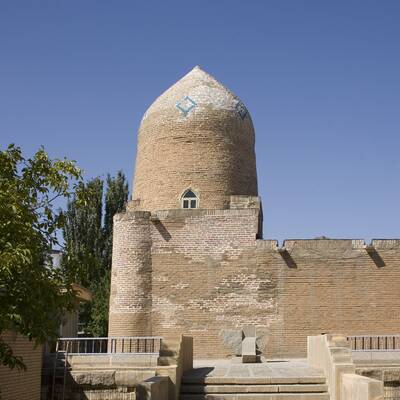Avicenna mausoleum is the memorial monument of a famous Iranian philosopher, scientist and physician. This monument is located in Abu Ali Sina (Avicenns in Persian) square in Hamedan. The convenient location of this historic square and also easy access to it, attract many people who pass through the city of Hamedan to visit this mausoleum. Avicenna's fame in medicine and philosophy has made him a global figure. Therefore, the number of tourists who travel to visit the mausoleum of this great philosopher is significant.
The current mausoleum of Avicenna is located in the house of Abu Saeed Dakhok, Avicenna's close friend, and Abu Saeed was also buried beside the Avicenna. The primary building of this mausoleum was built in the Qajar era (1789-1925) and the new mausoleum was rebuilt by Iran National Heritage Association according to Mohammad Reza Pahlavi’s order and opened in 1954.
The architect of this fantastic monument is Hooshang Seyhoun. The current plan of this mausoleum is inspired by the prominent architecture of the period that Avicenna lived and it is a mixture of Iranian ancient architectural style and Iranian architecture style after Islam. There are key elements in this construction such as the tower inspired by the Gonbad-e Qabus tower, gardens influenced by Persian gardens, a fountain inspired by traditional pools and a façade adorned with large and rough granite of Alvand Mountain representing the ancient Iranian palaces; All these elements are the inspirations which have been drawn from the traditional architecture style as well as modern style.
The tower of the mausoleum also has 12 columns, which is a symbol of the 12 sciences that Avicenna had the knowledge of them in his period of time. Avicenna Mausoleum has two north and south halls. The south hall of the mausoleum is dedicated as a museum for keeping coins, pottery, bronze and other discovered objects related to the millennia BC and the Islamic history of Iran. There is also a library of Iranian and foreign valuable books in the north hall.
-k-main.jpg)
-m-1.jpg)
-m-2.jpg)
-m-3.jpg)
-m-4.jpg)
